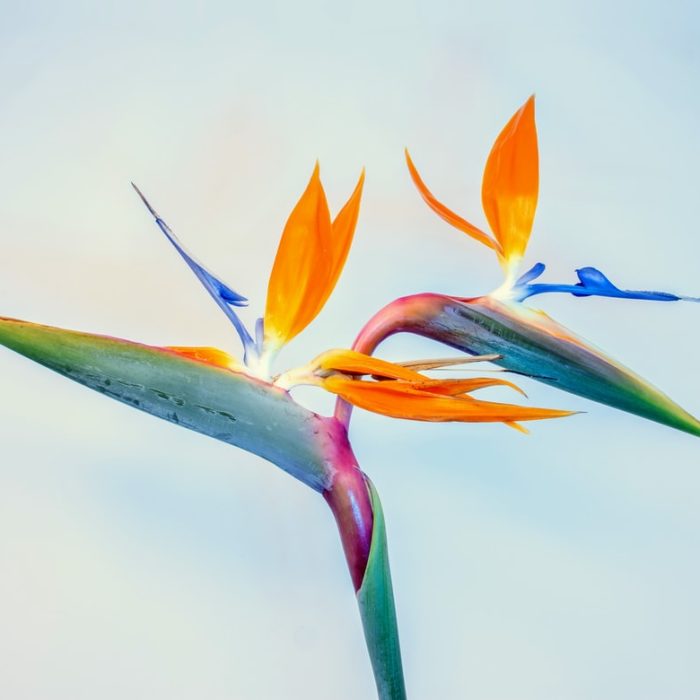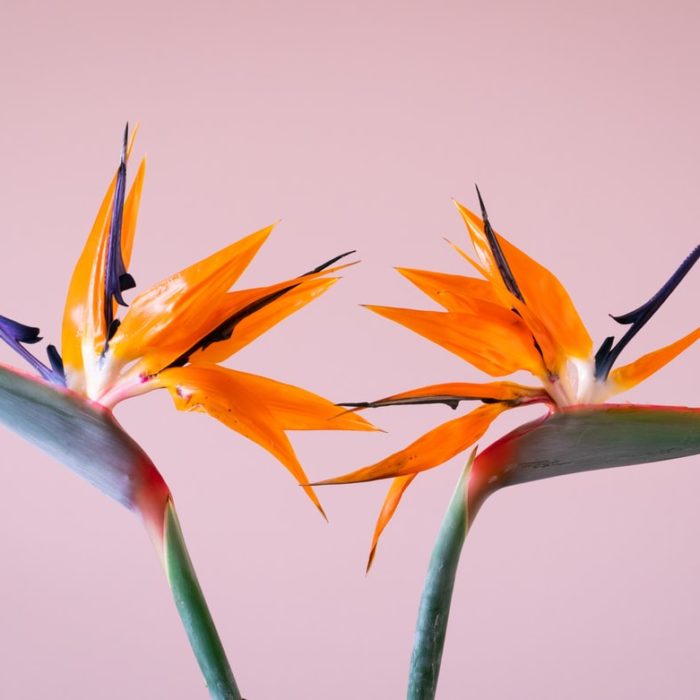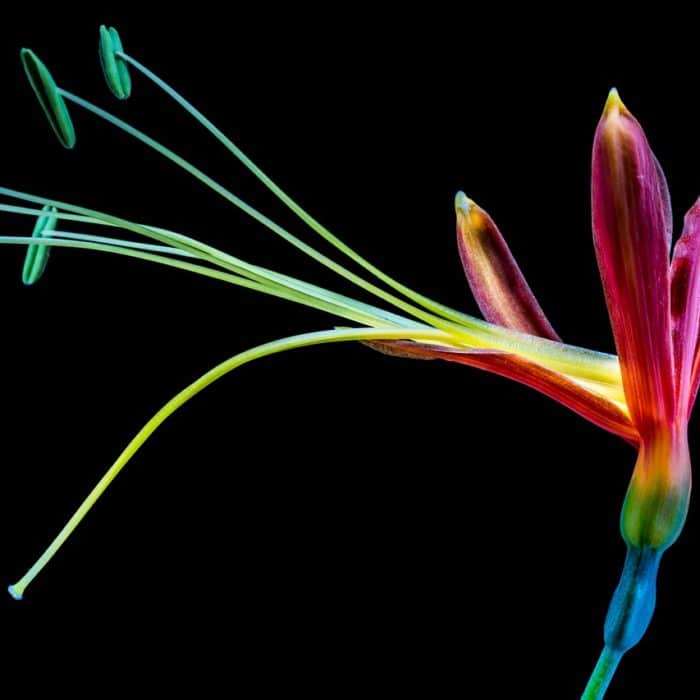Bird of Paradise plants are native to South Africa, where they grow in semi-shaded conditions with high humidity and frequent rainfall. Your plant will need 6 hours of direct sun (or equivalent indirect light) each day. If you want to give it the best environment possible, you may also want to consider moving it outdoors in the summer and bringing it back inside in the fall.
You can read our complete guide on how to care for a Bird of Paradise here.

What Causes Brown Leaves on a Bird of Paradise?
The causes of brown leaves on a Bird of Paradise can be anything from dry soil to over-watering. It is recommended that the soil be moist, but not soggy and that the pot or tray containing the plant be allowed to dry out between waterings.
-
1. Overwatering
Brown leaves can sometimes be due to over-watering. If the soil is kept constantly moist, the roots of plants will rot and cause brown leaves. Brown leaf tips can also indicate either low humidity or exposure to cold drafts. Be sure that your plant sits on a tray that allows for good drainage, so that water doesn’t accumulate around the base of the plant. The addition of pebbles in the tray prevents root rot by allowing air to circulate within it. Also, do not place plants near drafty areas such as doorways, hot air vents, or open windows.
-
2. Water Quality
If you have been using tap water to water your plants, there are other causes that could be at play here as well. Depending on your area’s water supply, the alkalinity and hardness levels of your water can be a cause. This is especially true if you have been using untreated well water to water your plants. These problem minerals will accumulate in the soil over time and can result in yellow or brown leaves on your Bird of Paradise plant.
-
3. Pests
If none of these things are the cause for your plant’s brown leaf tips, it could also be due to pests such as thrips, mealybugs, or spider mites. Cut off all affected parts of the plant and spray with an insecticidal soap while holding the plant under running lukewarm tap water. Then discard the cuttings in an area that other people do not walk by or around because they may get scraped.
-
4. Too Much Sun
Too much sun can cause brown leaves on a bird of paradise. This is because the plant will get too much heat and dry out the soil, which in turn causes browning. A Bird of Paradise prefers 6 hours of direct sun or equivalent indirect light each day, but will not tolerate hot temperatures. That’s why it grows in semi-shaded conditions with high humidity and frequent rainfall, which are often found in South Africa.
-
5. Specific Diseases
Leaves that are yellow with brown tips could also be caused by specific diseases like sunburn (sun scorch), leaf spot, cold damage, salt damage (which does not actually affect your soil but the water you use to water your plants), root rot due to poor drainage or too much moisture around roots or fungal infections such as stem cankers and root rots which often manifest themselves at the base of the plant where the stem meets the roots.
-
6. Not Enough Nutrients
Another reason for this plant to lose its leaves is that it has lost access to plant nutrients (nitrogen, phosphorous, and potassium) due to root damage. Root rot can also damage the roots of your plant so much that they cannot take up enough nutrients. Too much heat or cold can cause these nutrients to be locked within the soil, making them unavailable for your plant.

How Do You Prevent Brown Leaves?
It is important to make sure that the temperature does not dip below 40 degrees Fahrenheit because it could cause severe damage to your plant. The Browning caused by pollution and dry air is irreversible, but if you find that you have been experiencing these problems for a while, you should trim off about an inch or two from the bottom of the stem. This will cause the plant to sprout new shoots, leaving you with a healthy plant.
Leaves will turn brown and fall off if they are diseased, so it is important to diagnose the problem before taking action:
-
If you know for sure that your plant’s brown leaves are due to excess sunlight, consider moving it into a shadier area or covering it with a cloth for shade.
-
If your plant’s leaves are turning brown due to over-watering, you should let the soil dry out completely.
-
If brown tips seem to be due to fluctuating temperatures and too much sun, provide your Bird of Paradise with a thicker form such as a Trunk Extension (a clear tube that allows your plant to grow upward while it thickens its stem).
-
Browning could also be caused by insects such as thrips or spider mites: Cut off all affected parts and spray with an insecticidal soap while holding the plant under running lukewarm tap water. Then discard the cuttings in an area that other people do not walk by or around because they may get scraped again.
-
Prune any branches that have died back and remove any weeds in order to give new growth space and light to grow.


